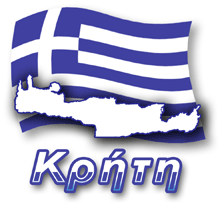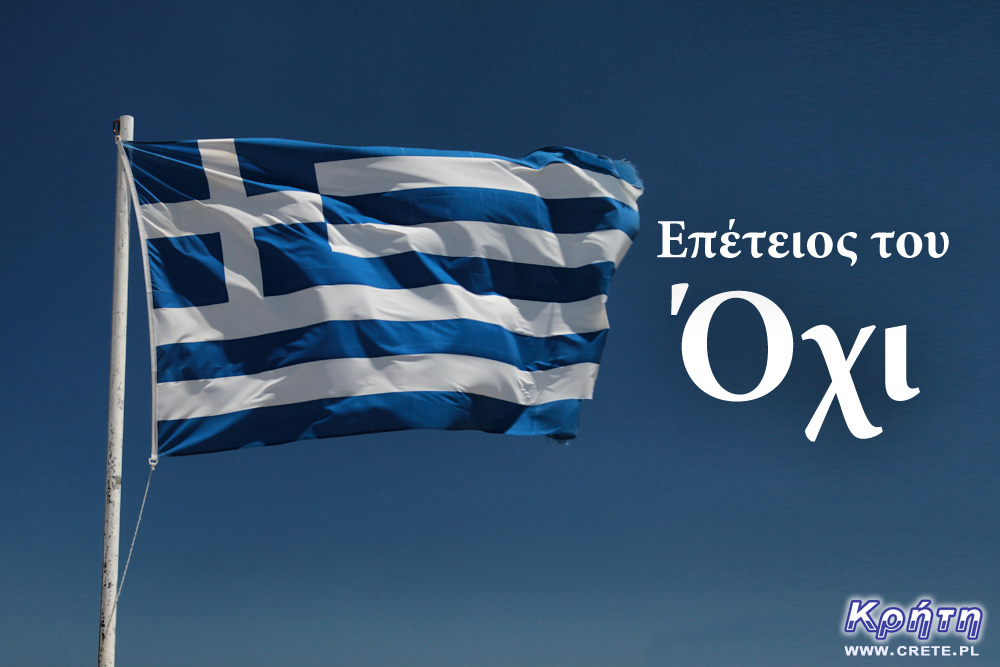
 2023-10-28 19:40:42
2023-10-28 19:40:42
October 28 is one of the most important public holidays in Greece, the Day of No ( Oxi ). It is the anniversary of the day when Greek Prime Minister Joanis Metaxas's determined opposition ended Greece's neutrality in World War II. Just 2 hours after saying these words, the invasion of Mussolini's army began.
Today, on the anniversary of these events, state ceremonies, military parades and civilian parades were organized in Greek cities. In 30-degree heat, this anniversary was also celebrated in Heraklion, Chania, Rethymno and Agios Nikolaos in Crete. Greek Prime Minister Kyriakos Mitsotakis took part in them in Chania.
In Thessaloniki, a special moment of the military parade was the flight of the commander of the Zeus squadron, Ikaros Charitos. During the demonstration of the capabilities of the F-16 aircraft, Charitos sent a message that resonates very particularly in these troubled times: " Good morning Thessaloniki, good morning Greece, only free souls protect free homelands. Honor and glory to those who sacrificed themselves for the homeland .
Since the beginning of World War II, Greece, which declared neutrality, was playing a very difficult game of chess. Representatives of the dictatorship of Ioannis Metaxas tried to skillfully balance between support for the Allied forces and the possible inevitable intervention of the Axis powers. Despite a number of diplomatic efforts and Joanis Metaxas's clear sympathy for the then German authorities, the night of October 27-28, 1940 put an end to Greece's further neutrality.
However, before we begin to describe the moment when the significant word "NO" was uttered by Joanis Metaxas, it is worth going back a few months to mid-1940, when Italy began its participation in the theater of war on the Western Front.
Benito Mussolini hoped that participation in the invasion of France would give him the opportunity to occupy the southern part of the country. His hopes were quickly dashed by Adolf Hitler himself, who informed him that the Italians would only be able to occupy the areas they conquered themselves.
On June 10, Benito Mussolini designated two armies to attack France, consisting of about 300,000 soldiers. These forces were almost twice as numerous as the French troops standing on the other side of the border. Although on paper the Duce's army made quite a good impression, the reality on the front turned out to be very brutal for the Italians and exposed their numerous weaknesses. Poorly trained infantry, equipped with outdated equipment and lacking artillery support, was not an equal opponent for the French defense. The poor condition of the Italian army is evidenced by the fact that on most of the front both armies did not advance further than 5 miles into France.
This ineptly conducted campaign cannot be described as anything other than a complete fiasco. The comparison of the losses of both countries is shocking. The French lost 37 soldiers compared to 631 killed on the Italian side. The weakness and poor morale of the Duce's army is also proven by the fact that out of 300,000 Italian soldiers participating in the war, almost 3,900 were captured by the French.
The participation of Duce's troops in the French campaign ended with such poor results. Mussolini understood that the best way to erase this stain from the honor of the Italian uniform would be quick success. Greece, located among the neighboring countries of Italy, seemed to be an easy prey, the conquest of which would not pose a major challenge to Mussolini's still numerous army.
Early in the morning of October 28, 1940, around 3 a.m., just after the end of a lavish banquet held at the German embassy, Emanuele Grazzi went to the house of Joanis Metaxas. The Italian ambassador delivered an ultimatum to the Greek prime minister, which included a number of demands. These included the possibility of free passage of Italian troops to the Greek-Albanian border, giving up control over airports, ports and other strategic places located on Greek territory.

The course of hostilities on the Greek border ( )
After reading the text, Joanis Metaxas turned his gaze to the Italian ambassador and, with a firm, strong voice, replied to him in French (the official language of diplomacy at that time): "Alors, C'est la guerre." Well, that means war. Emanuele Grazzi tried to calm the situation further by convincing the Greek Prime Minister that war could still be avoided. However, these not very clever proposals were answered by Joanis Metaxas with a short NO, which ended the further conversation. Two hours after this meeting, the Italian invasion of Greece began. However, Mussolini's "powerful" army quickly learned how difficult and demanding an opponent the Greek army, which he underestimated, was. The well-developing offensive slowed down very quickly, only to stall for the next winter months.
Just two days after these events, the firm refusal of Joanis Metaxas and the word " No " were used by the newspaper " Grecka Przyszłość " (Ελληνικό Μέλλον), which printed the symbolic inscription ΟΧΙ on the front cover. Very quickly this word became a symbol of Greek resistance to Italian aggression.
For the first time, the anniversary of Oxi Day was celebrated in the courtyard of the University of Athens during the occupation in 1941. After the end of World War II, October 28 was established as a public holiday. Its ceremonial celebration was organized for the first time in 1944 by the then Prime Minister George Papandreou. Since 1952, the Feast of the Protection of the Blessed Virgin Mary, celebrated on October 1, was moved to October 28. Since then, Oxi Day has also been a church holiday.

 2023-10-28 19:40:42
2023-10-28 19:40:42
Komentarze
komentarz z
Χρόνια πολλά Ελλάδα
Wypełnij poniższy formularz aby dodać komentarz
lub kliknij w poniższy link aby skorzystać z możliwosci komentowania przez facebooka:
https://www.facebook.com/crete.poland/posts/718630456977888